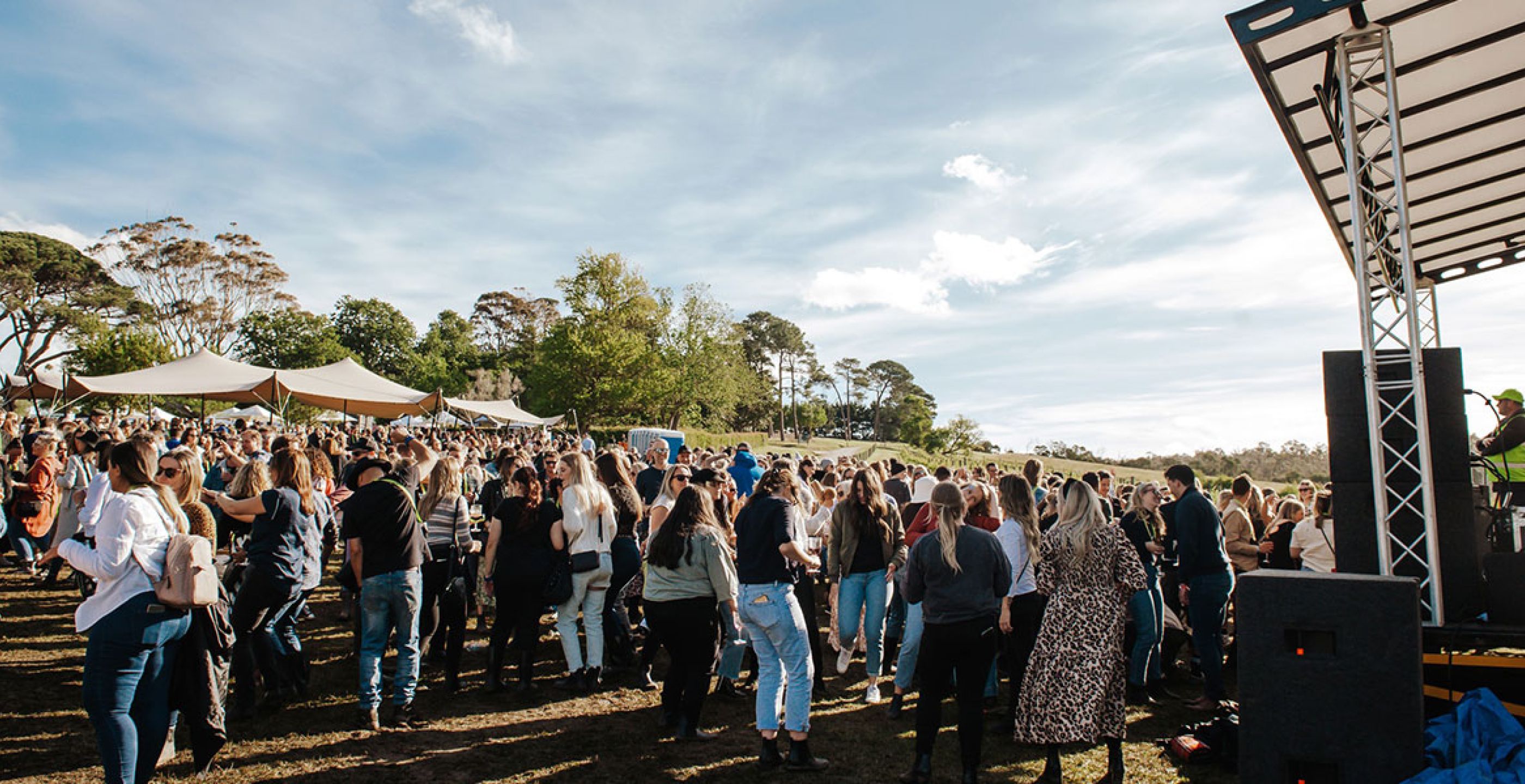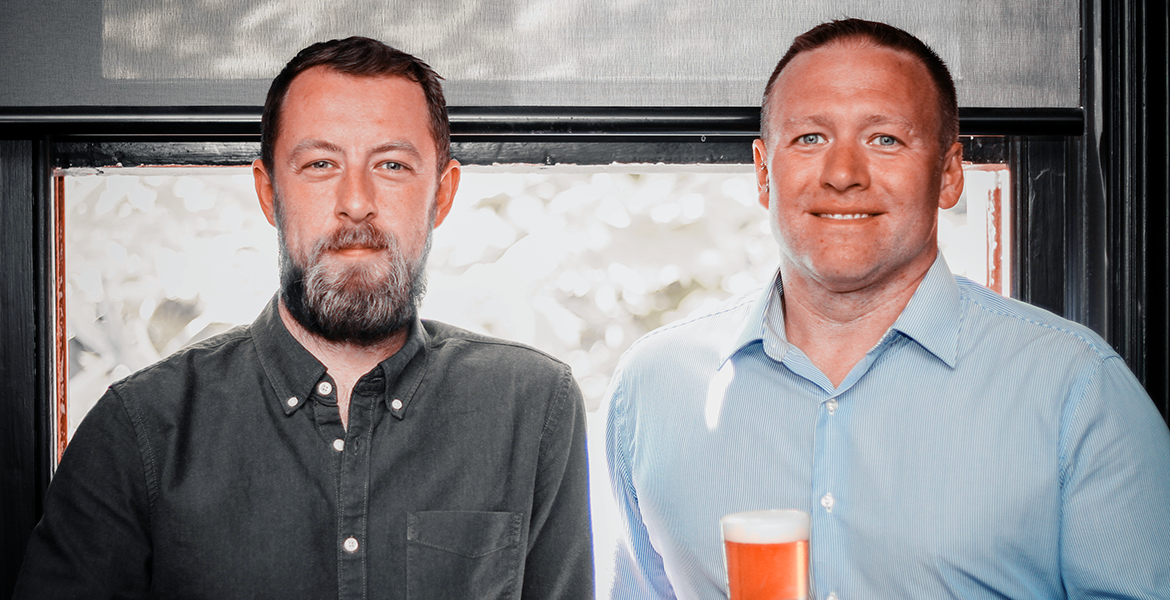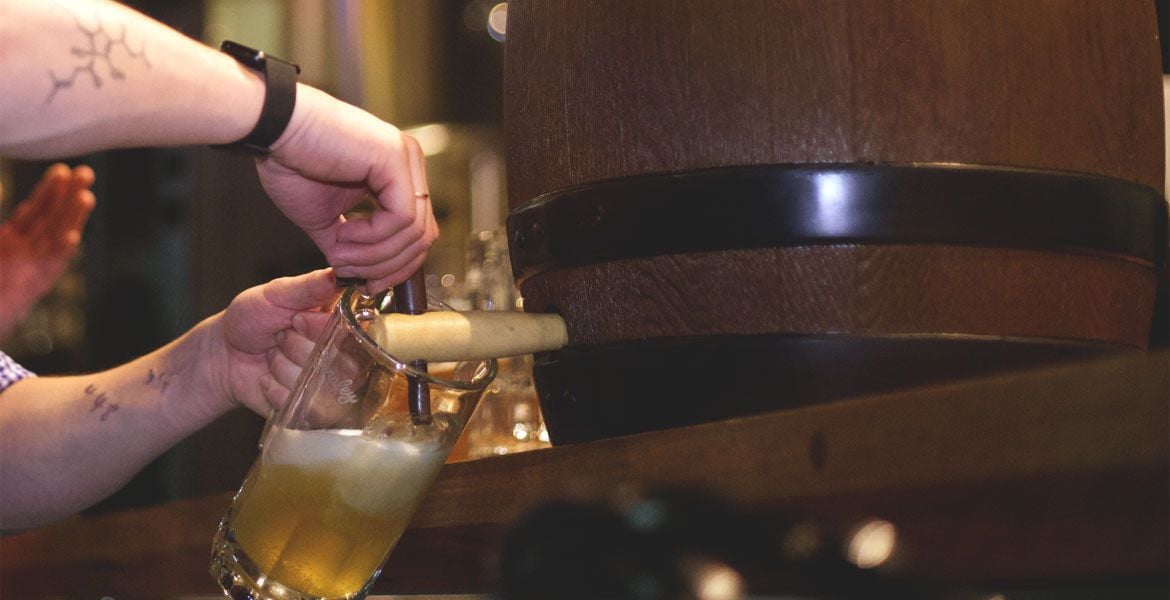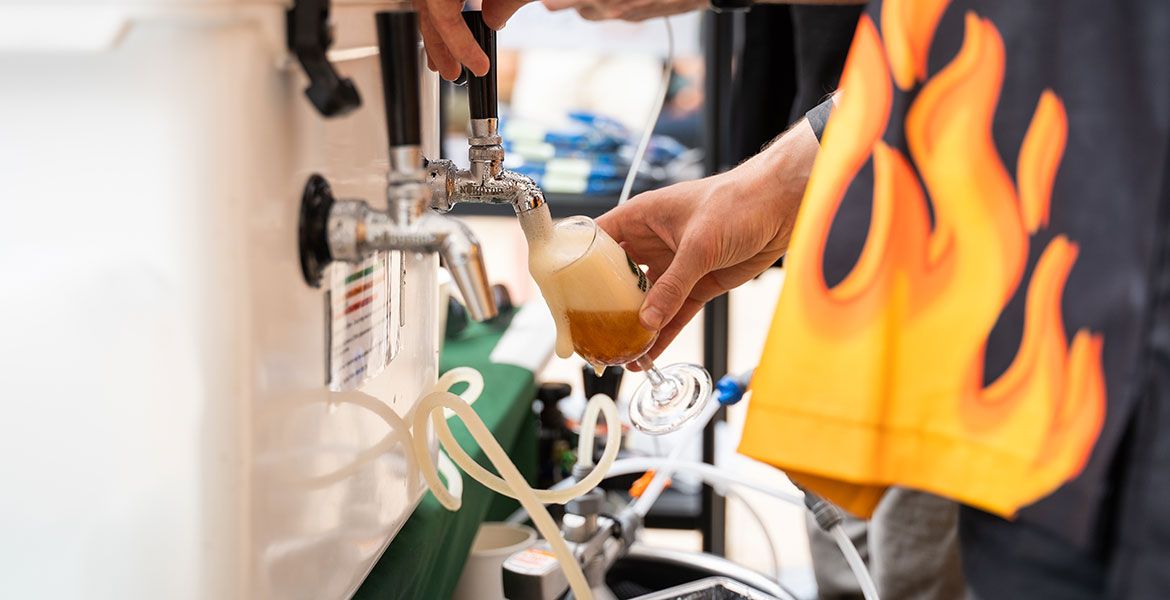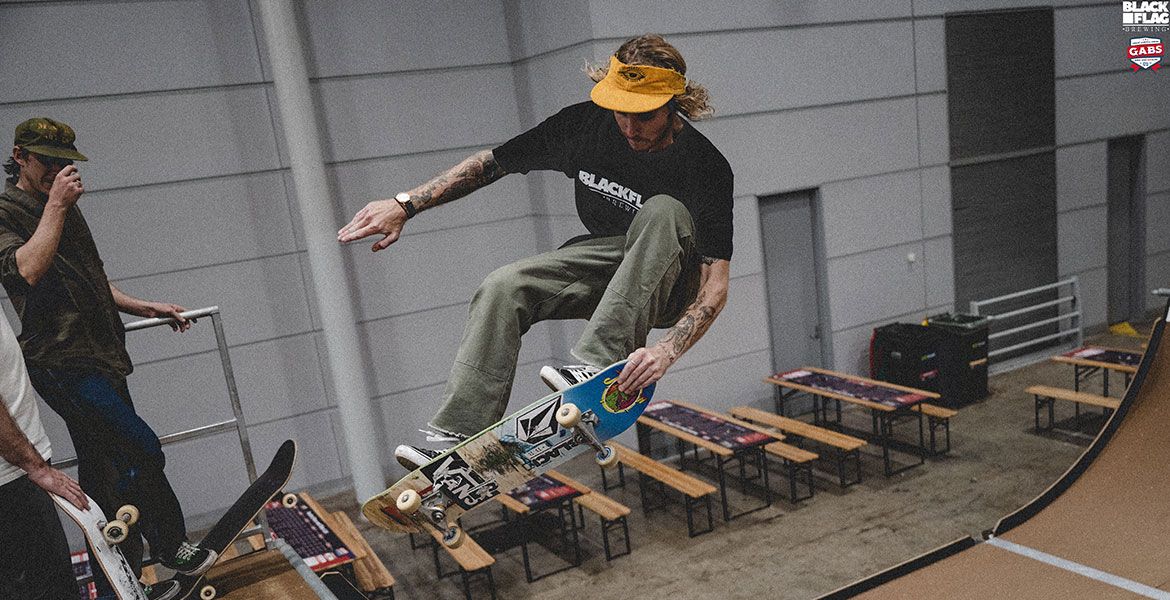As winter enters its final month, plenty of people will be looking forward to better weather ahead. And if you're a beer drinker, the approach of summer promises more: festivals. Yet, even with peak festival season still some months away, there are concerns for what lies ahead as consumers continue to tighten their belts.
Lisa MacGregor is the founder of VineHop, a unique roving affair that sees attendees shuttled between Mornington Peninsula venues to enjoy local beer, wine, spirits and other drinks at a number of venues, each hosting food trucks, DJs and live music for the day.
Earlier this month, her festival's contribution to the local economy led to the award of a grant by the Victorian Government’s Small and Medium Events Program, a show of support the team was thrilled to receive and recognition that the locally-run festival brings something special to the region.
“We were so excited when we got the grant,” Lisa says. “It’s that endorsement: they acknowledge and understand there’s a value to the event.”
But the government support comes at a time when the outlook for VineHop is more unclear than at any time since its debut in 2017.
“We’re four months out, so I shouldn't be probably feeling like it's as dire as it is,” Lisa says of current ticket sales.
“But we've got some really good metrics in place. We normally sell out at least 50 percent of our tickets the weekend we launch and we’re well short of that. Even though we’ve got four months to make up the shortfall, I don’t foresee that’s going to translate to where it needs to be.”
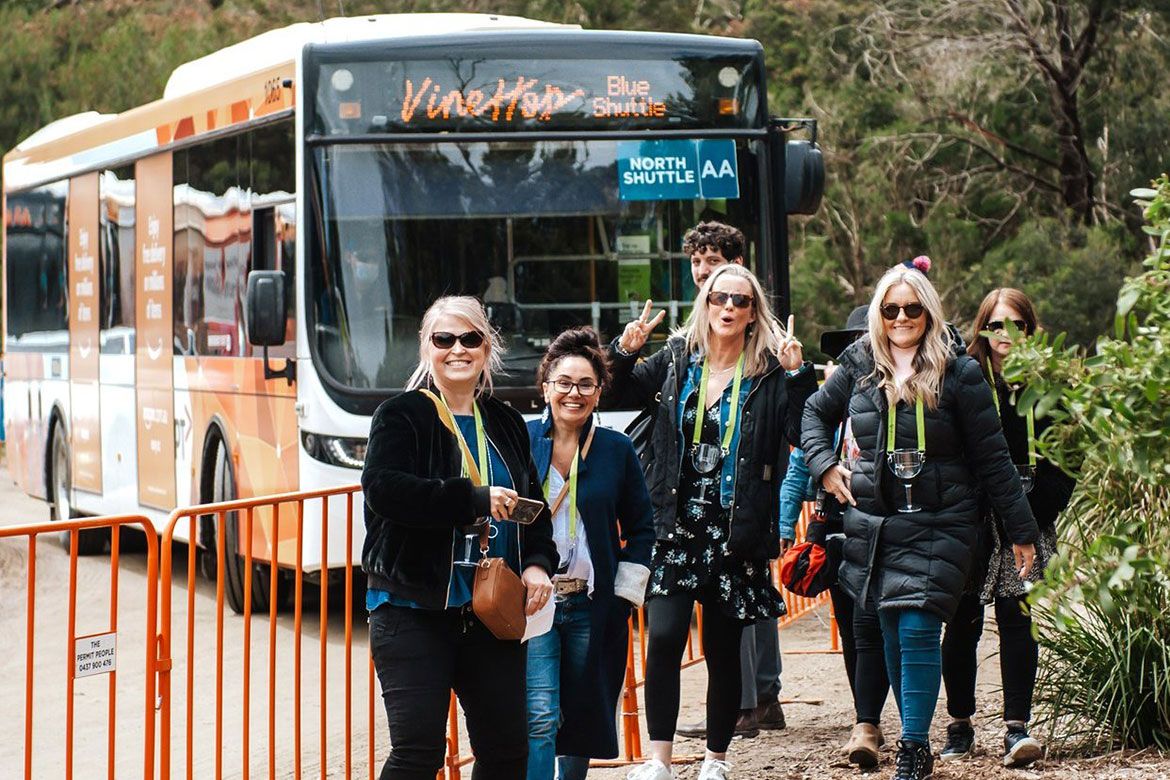
While VineHop will be going full steam ahead this year, Lisa is unsure about its longterm future. She cites the rising costs of running such an event, the drop in consumer spending and confidence, and the fact many people are holding out until the last minute to buy tickets. It’s a trend that’s been impacting live music and cultural events since lockdowns finished, and Lisa thinks it’s here to stay.
“It’s not just gigs or events,” she says. “People are feeling like there’s more they’re trying to fit into their lives on the back of not being able to do anything for a really long time; they just want to keep their options open.”
The cost of running VineHop has risen by 40 percent since the start of the COVID pandemic and Lisa adds that, when tickets don't move, you face the very real risk of having to cancel the closer you get.
“But we’re also looking at the future where it’s not worth the risk unless you can get that early commitment,” Lisa says.
“It’s better to haemorrhage a chunk of money prior to the event than to haemorrhage your whole house the week of.”
She says other event organisers, as well as businesses that supply festivals, have expressed concern over their longstanding viability. The team at Ballarat Beer Festival, which has been going since 2012, has openly discussed the increased difficulty in running the event, particularly without local government support.
The VineHop founder says regional events add a lot to the local economy, whether it’s through connecting attendees with new producers, or by attracting people to stay in the area. By their estimates, the 2022 festival brought around $1.44 million of benefit to the Mornington Peninsula, including close to 2,600 overnight stays.
“Fifty percent of our attendees are visitors to the region, so we’re getting a lot of out-of-towners,” she says.
In America, the appetite for major beer festivals has been declining too as breweries and punters face rising costs; the beer festival landscape in Australia changed last week too when GABS acquired a range of festivals from the Schwartz Family.
That said, it's not all doom and gloom, with a number of niche and larger festivals continuing to find success. Hop Nation's Blobfish Festival sold out earlier this month, there's less than 300 tickets left for Bendigo On The Hop a month out, and the team behind the BeerFest series of events enjoyed their strongest 12 months on record.
As well as running BeerFests in multiple states, they've been involved in the Great Australian Beerfest Geelong since 2021, and also hosted Sip & Savour in Albury, Port Macquarie and Lake Macquarie, which sold out its Saturday session at 4,000 tickets. Those festivals ran with the support of the NSW Government, eager to entice more people to the regions following the impact of bushfires and COVID.
BeerFest co-founder James Harding says that, while they enjoyed a successful year, they are aware of the challenges.
“We do hear a bit from the industry and maybe are a bit of an anomaly to what's happening,” he says, adding that regional events can be more difficult to run due to the limited number of suppliers, which can lead to increased costs, and smaller populations to tap into.
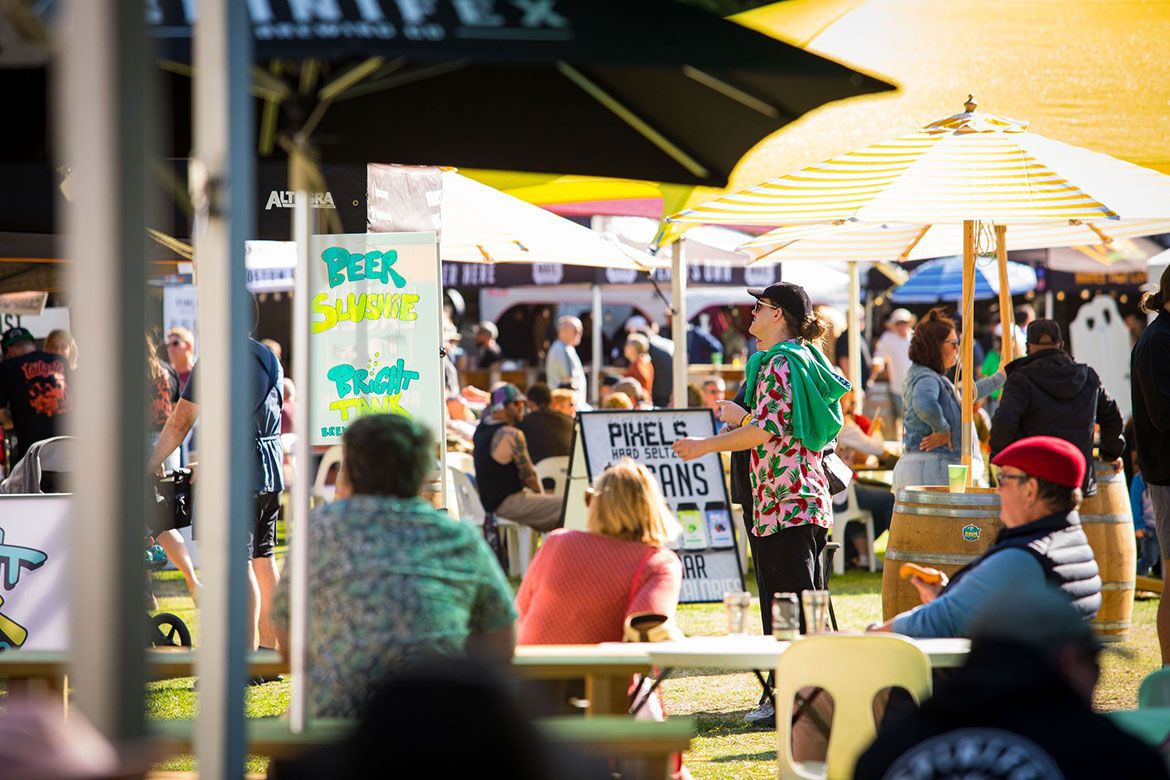
“It’s definitely harder to run regional events,” says James. “You can bring in a lot of tourist dollars, which is what we found ... but then there's a cost associated with bringing them to your event.
“The advertising dollar is more expensive to bring them in; they want to see your event advertised more and you’re starting from a low base where you’ve got to build trust and brand equity with that person.”
One of the challenges he sees is that the events space has become more competitive since COVID, in part due to the funding that’s been available to organisers.
“It created a fairly competitive space in the market,” he says. “And people thought if they had had an event, had a name, had really good artists, that that would be enough. But it's just not."
With consumers watching what they spend, James says BeerFest chose to absorb inflation costs rather than pass them onto consumers, a decision made possible by the fact the festivals are run by a small full-time team.
“We want lots of patrons at our event, to sample and taste and build relationships with the breweries, and then we want the breweries to be successful,” he says, adding that the events space has always been a risky one in which to operate.
“For us, it’s about being as hardworking as we possibly can while still having a good balance and flexing up when we need to.
Following a disaster year in 2022, ticket sales for this month's Splendour In The Grass were down 30 percent, Falls Festival won’t be returning this year, and the Grass Is Greener went into liquidation just days ago. It's a picture that has Lisa concerned as to how far the impact could be felt.
“If some of these events start falling over, then the pipework that feeds that, all of the contractors, will start to fall as well,” she says.
Tickets to VineHop festival are available here.
Presale registration for Fremantle BeerFest are open.



